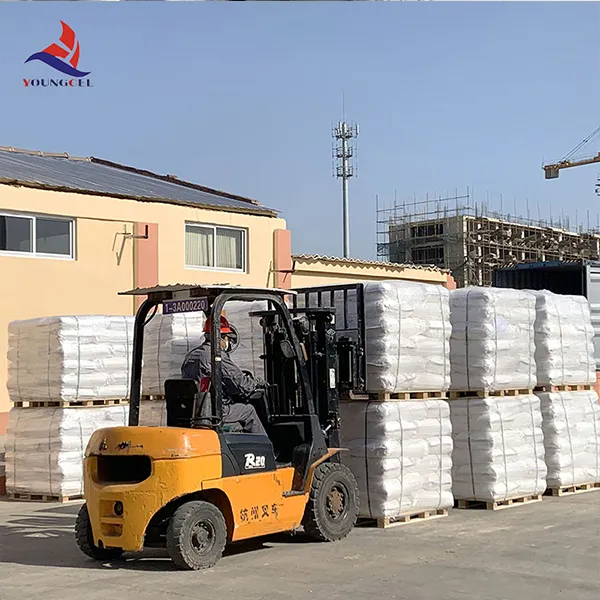The Importance of Chemical Composition in Tile Adhesives
Tile bonding is a crucial aspect of construction and interior design, ensuring that tiles adhere securely to surfaces, whether they are floors, walls, or ceilings. One of the key factors that determine the effectiveness of tile adhesives is their chemical composition. Understanding the chemical constituents of tile bonds not only helps in selecting the right adhesive but also enhances the longevity and durability of tile installations.
Composition of Tile Adhesives
Tile adhesives, commonly referred to as thin-set mortars, are primarily composed of a mixture of cement, fine aggregates, and water-retention agents. These ingredients are crucial for the performance characteristics of the adhesive. The type of cement used can vary; however, the most common types are Portland cement and modified polymer adhesives.
1. Cement The primary component of most tile adhesives is cement, which serves as the binder. Portland cement, when mixed with water, undergoes a chemical reaction known as hydration, resulting in a solid and durable compound. Modified cementitious adhesives often contain additives to improve performance characteristics, such as flexibility and water resistance.
2. Aggregates Fine aggregates such as sand are incorporated to provide bulk and improve the workability of the adhesive. The quality and size of the aggregates can significantly affect the bond strength and setting time.
3. Additives Various chemical additives are included to enhance the properties of the adhesive. These may include - Polymers These are used to improve adhesion, flexibility, and water resistance. Polymer-modified adhesives tend to outperform traditional cement-based adhesives, particularly in environments that experience temperature fluctuations or moisture exposure. - Retarders These chemicals slow down the setting time of the adhesive, allowing for more extended working periods, especially in warm conditions. - Accelerators Conversely, these agents speed up the curing process, which can be beneficial in cold conditions.
Importance of Chemical Properties
chemical for tile bond

The chemical properties of tile adhesives affect their performance in various ways
- Adhesion Strength The interaction between the adhesive and the tile surface is influenced by the chemical makeup. Properly formulated adhesives can form strong bonds with different tile materials, including ceramics, porcelain, and natural stones.
- Flexibility and Movement In environments subject to movement or vibration, such as heated floors, the flexibility of the adhesive is vital. Chemical additives that enhance flexibility help prevent cracking and delamination.
- Moisture Resistance In humid environments, moisture can compromise the integrity of tile bonds. Chemical compounds that improve water resistance are essential for tile installations in bathrooms, kitchens, and outdoor spaces.
Environmental Considerations
With growing awareness of environmental issues, the chemical composition of tile adhesives is being scrutinized. Manufacturers are increasingly focusing on sustainable practices by developing low-VOC (volatile organic compound) adhesives. These products are designed to minimize harmful emissions while maintaining performance efficiency. Additionally, eco-friendly additives derived from natural sources are being explored to replace traditional synthetic materials.
Conclusion
The chemical composition of tile adhesives plays a pivotal role in determining the success of tile installations. Understanding the functions of each component, from cement to additives, enables architects, builders, and DIY enthusiasts to make informed choices when selecting the right adhesive for their projects. As technological advancements continue to evolve the field of construction materials, the focus on performance, sustainability, and safety will undoubtedly guide future developments in tile bonding chemistry. Ultimately, a well-chosen tile adhesive not only ensures aesthetic appeal but also guarantees the structural integrity and longevity of tiled surfaces. Consequently, recognizing and utilizing the right chemical formulations will lead to successful and enduring tile installations.
-
The Application and Significance of Construction RdpNewsMay.19,2025
-
Industrial Grade HpmcNewsMay.19,2025
-
Building Coating Adhesive Building Coating Adhesive HpmcNewsMay.19,2025
-
Application Of Hpmc For Detergent For Detergent In DetergentsNewsMay.19,2025
-
Application Of Hpmc Cellulose In Cement-Based MaterialsNewsMay.19,2025
-
Application Of High Quality Hpmc For Construction In The Field Of ConstructionNewsMay.19,2025




